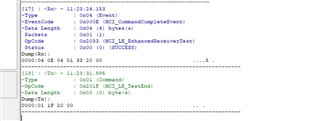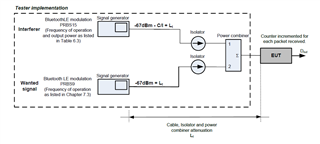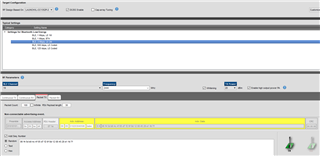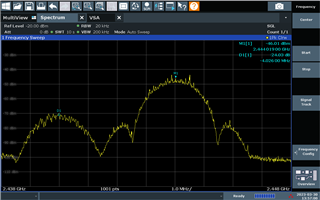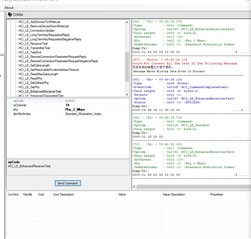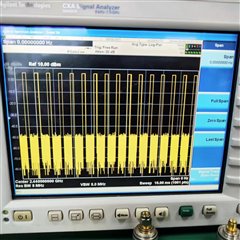Other Parts Discussed in Thread: CC1352P7
Hi Sir,
We are testing the LP-CC1352P7 for its BLE recevier peformance, and we used the C:\ti\simplelink_cc13xx_cc26xx_sdk_6_40_00_13\examples\rtos\LP_CC1352P7_1\ble5stack\host_test\tirtos7\ticlang. But when we test the receiver selectivity at LE 2M, we set the wanted signal at 2440MHz and -67dBm, the interference signal at 2444MHz and -31dBm, the program in LP-CC1352P7 has a stuck, we can't use the receiver test until we use the reset button so that it can return to normal. When we test at LE 1M or LE Coded it can work normally, just at LE 2M it makes the mistake. I want to know about why this mistake would happen at LE 2M? are there any solutions can solve it?
